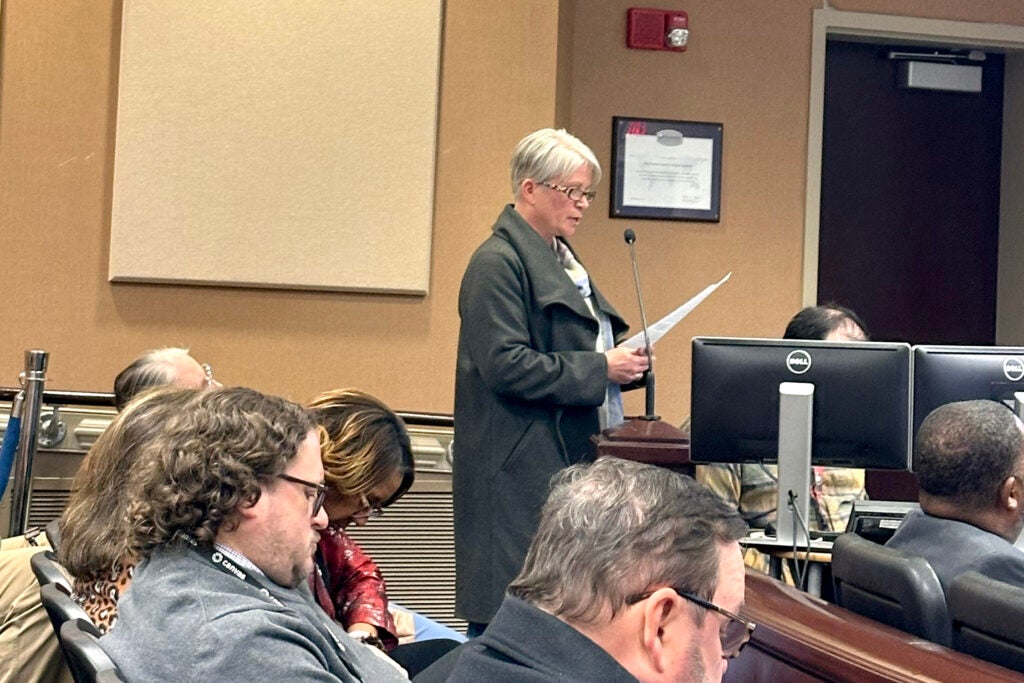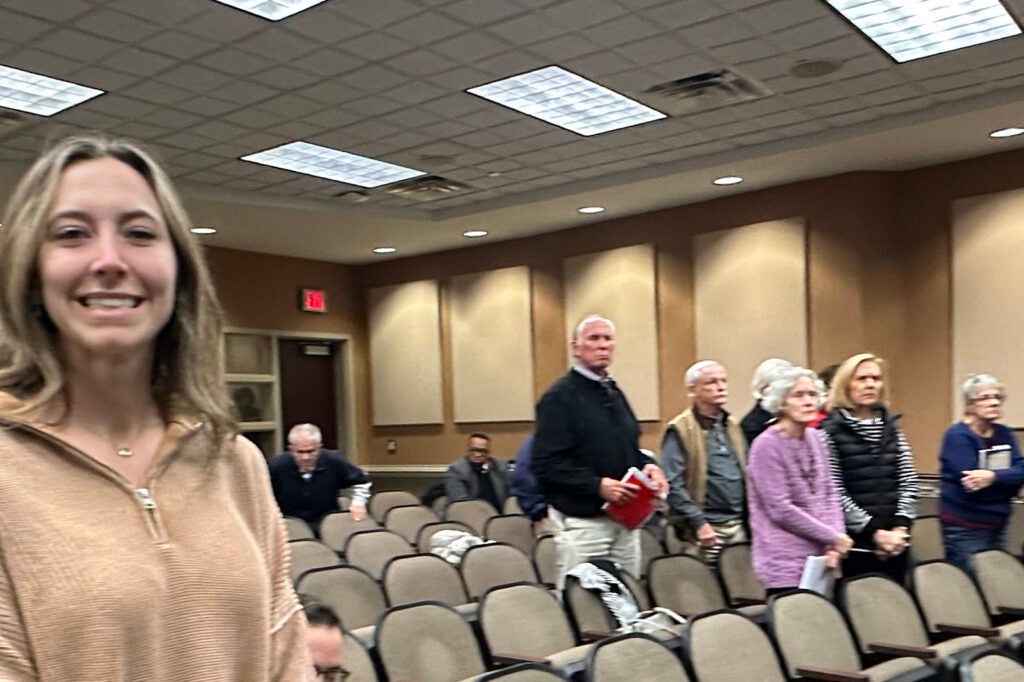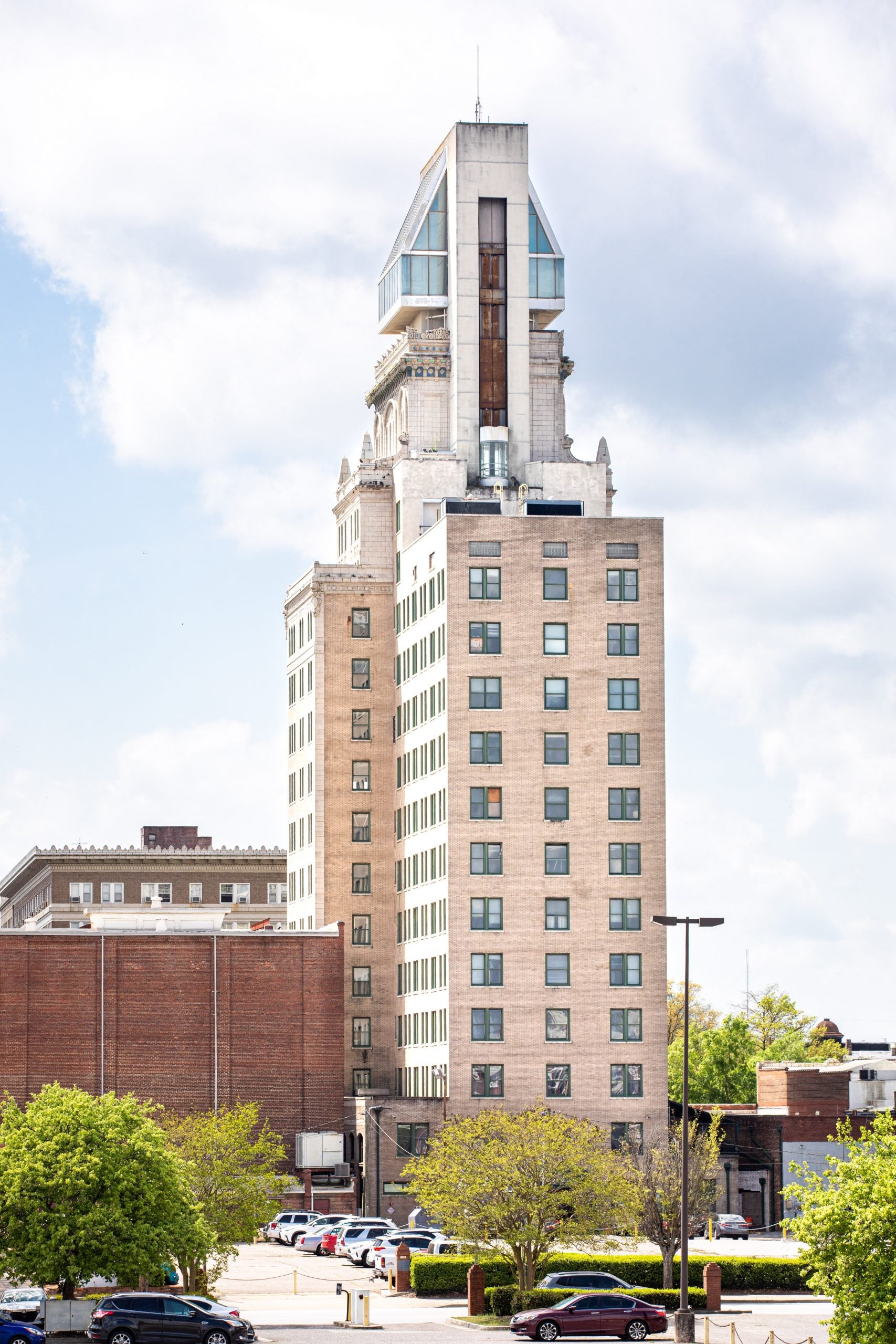Nearly three dozen residents of the Woodlawn Historic District came out in opposition to Richmond County Board of Education’s decision to sell a historic school to build government-subsidized housing.
At its December meeting the board went behind closed doors for about 70 minutes, emerging after nearly all in attendance had left and made the unannounced sale of the former Lamar Elementary School to an LLC – identified only by the building’s Baker Avenue address – for $1.365 million.
No school district trustee made any statement about the sale Tuesday, other than to chastise the media for calling the transaction a secret deal.

District spokeswoman Beth Meagher has lived a block from the site for seven years and like most, learned of the sale from the media.
The Woodlawn Historic District, added to the National Historic Register in 2019, runs south of Walton Way roughly between Heard Avenue and historic Paine College and includes the 241-year-old Academy of Richmond County.
Meagher asked the 10 board members “to recognize first that our discussion affects real individuals, residents of homes that live in the neighborhood surrounding the property.”
The sale further landlocks Richmond Academy, limiting options for its future development, nor could residents afford to buy Lamar had it been offered for sale, she said.
The group’s second concern is the proposed use of the site, she said.
A steering committee’s efforts appear more like “moves on a chessboard” as they tell residents of the aging housing project Allen Homes about their new housing options, which the buyer has eight years to build.
“The residents are being told that the Lamar property is only one of many properties that is being considered for development,” she said.
The city obtained a $450,000 Choice Neighborhood planning grant several years ago to improve housing options in the Laney-Walker and Harrisburg communities, with the hope of obtaining a multimillion-dollar Choice grant to implement the plan.
After extensive surveys of residents and the target areas, the steering committee’s selection of a property located in another area came as a surprise to most.

“The board of education exists to represent the interests of the students of Augusta-Richmond County, not to be embroiled in the planning and/or execution of public housing,” Meagher said.
The federal Choice Neighborhood program’s stated purpose is to leverage public and private dollars to address neighborhoods “struggling with distressed public or HUD-assisted housing,” she said.
“The historic Woodlawn neighborhood is not currently struggling with distressed public or HUD-assisted housing. In fact, our neighborhood is outside the bounds of the Choice Neighborhood, as it has been drawn and shared in the public record,” she said.
Woodlawn is “experiencing our own slow revitalization,” she said.
“Moving Allen Homes residents to this property disrespects their desire to be part of the Laney-Walker neighborhood and its history. If you look at the survey results, you see they reflect that,” she said.
“It disrespects those who have worked to make the Academy of Richmond County what it is. It disrespects the spirit of Choice Neighborhood’s own stated mission, and disrespects the citizens of the Woodlawn neighborhood who’re investing to revitalize the physical property in the community.”
The sale is not yet final and Meagher urged the board to reconsider it.
“No deal is done until paperwork has been signed. For the benefit of Richmond Academy and the surrounding neighborhood, walk away from this deal,” she said.
Also speaking on behalf of the neighborhood was former commission candidate Michael Thurman, who lives in and owns rental property in the area.
Thurman brought another wrinkle to the board’s equation. Lucy Craft Laney High School students, many whose parents and grandparents attended Laney, will be permanently shifted to the Academy of Richmond County, he said.
“Laney is a beautiful school with a rich history and I know a lot of alumni that are upset they are going to be bused over to another school permanently by living across the street,” he said.
Laney is named for legendary Black educator Lucy Craft Laney and sits in the historically Black Laney-Walker district, where the city has undertaken a massive development effort.
“Laney has been very underutilized and moving more students out of there is not good,” he said. “We would love for you to change your vote, or at least postpone the sale for a few months.”
The school board made no comment to the three dozen Woodlawn residents, most of whom had waited through lengthy school committee meetings for the chance to be heard.
Board President Charlie Walker told the group the board was going behind closed doors, not stating the applicable exception under Georgia Open Records laws for closing the meeting.
“I don’t know how long we’re going to adjourn and you’re welcome to stay here as long as you want because we will be back here at some point,” Walker said.
Most of the Woodlawn residents waited two hours for the trustees to emerge, but they took no action.
But prior to Meagher and Thurman speaking, however, Trustee Jimmy Atkins spoke for nearly five minutes about media reports about the sale.
“A couple of the media outlets in this town reported that this board went into executive session and that our president excused the audience and that we took action on an item that we were trying to hide,” he said.
“I just want to make it very clear, this board has operated the same way for many, many years,” said Atkins, who has been on the school board since 2005.
“We hold executive session at the end of our meetings and if any decisions are made in that we come out and we hold a public vote as we’re required to do.”
Walker’s excusal of the audience Dec. 12 actually applied to “staff,” Atkins said.
“For media in this town to accuse Mr. Walker and the rest of us board members that we were doing something underhanded or shady, I take personal offense to it.”











